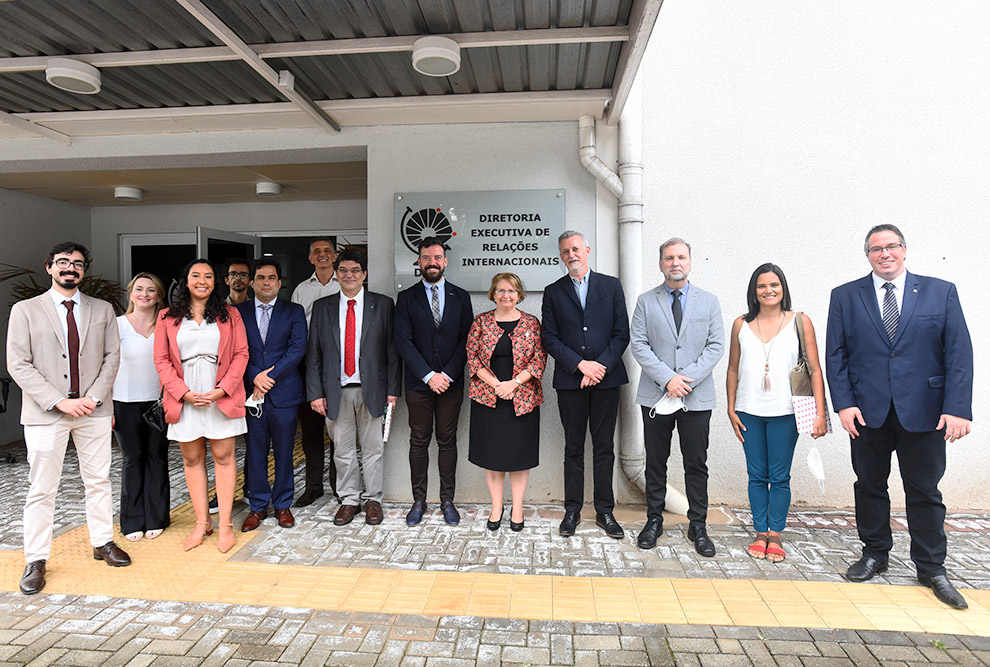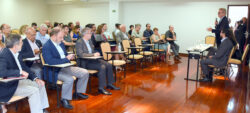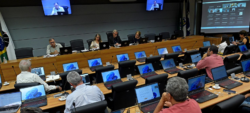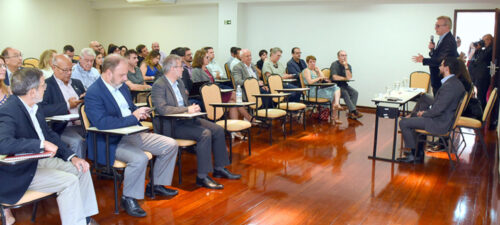Unicamp received, this Monday (6th), the visit of a Canadian diplomatic delegation. The purpose of the meeting was to strengthen partnerships. The expansion of mobility between academic communities and research collaborations in areas of common interest were possibilities raised.
The general consul of Canada in São Paulo, Heather Cameron, and the consul and director of the Quebec Office in São Paulo, Jason Naud, were received by the rector of Unicamp, Antonio José de Almeida Meirelles, by the executive director of the Executive Board of International Relations (DERI), Osvaldir Taranto, and other members of the Central Administration of the University.
The dean presented Unicamp projects, among them the Hub for Sustainable Development (HIDS), and the central concerns of the administration, such as the inclusion of people in socioeconomic vulnerability, indigenous peoples and blacks in the university. He also addressed research that is carried out in all areas of knowledge and in partnership with other institutions, indicating the possibility of collaboration with Canadian universities and research centers.
“Brazil has good opportunities for bioeconomy, green economy and other societal demands related to health, inclusion, maintaining the idea that in science and technology we have to train people to meet these demands. We would like to strengthen our relations around these themes”, she pointed out.
The director of DERI presented an overview of Unicamp's internationalization activities. One of the challenges pointed out by him was the so-called internationalization at home, when students from other countries come to carry out activities at Unicamp. “To become an international university, we are planning to offer more courses in English, making it easier for undergraduate students to come […]. We are working on it.”

Heather Cameron, Canadian consul in São Paulo, mentioned several topics that are of common interest between the countries, such as renewable energy, recognition and compensation for the indigenous population. She also recalled that Brazil and Canada already have a governmental relationship in the area of science, technology and innovation and share concerns and priorities.
“Canada and Brazil have a formal governmental relationship for science and technology and significant innovation, which is reflected in the number of collaborative articles between our countries. We want to improve relations between Unicamp and Canada, and this is an opportunity for us”, he said, also indicating that the visit to Unicamp's Innovation Agency (Inova) would contribute to identifying potential for this purpose.
The interest in partnerships with Brazil was highlighted by the director of the Quebec office. “Two and a half years ago, the office had two people and now it has nine. This shows how the Quebec government has an interest in engaging with Brazil. One of the strategies is the mobility of workers and students. Facilitating mobility is part of what we do at our office. We want to bring more students here and bring more students to Canada.”
He also recalled that Montreal is considered one of the smartest cities in the world and can contribute with its experience to the HIDS project.
In addition to the meeting, the Canadian delegation also visited Inova.





